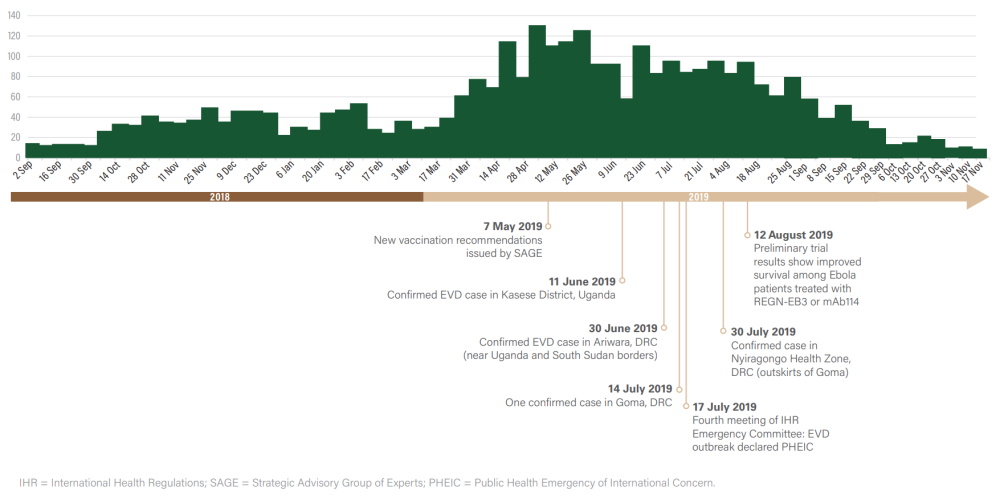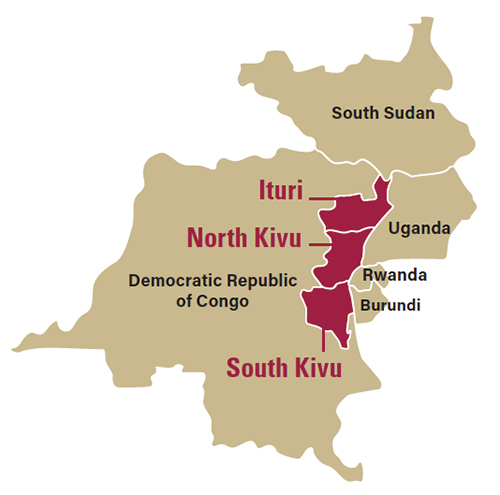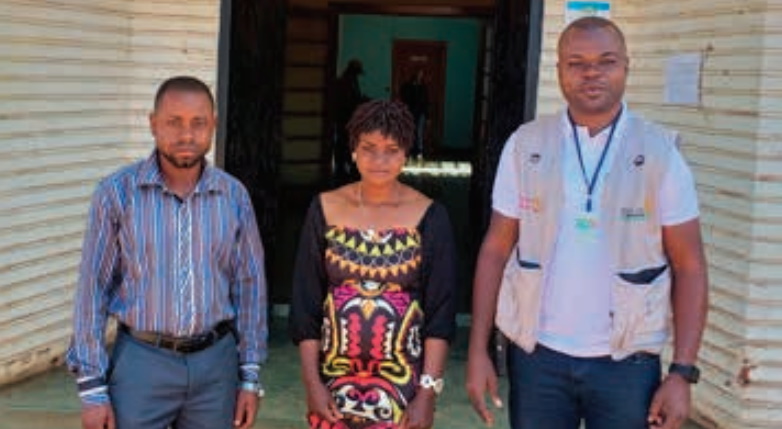Overview
Epidemic curve for confirmed and probable cases by date of onset
10th Ebola outbreak, DRC, 2018–2019

Affected areas

Africa CDC response activities this week
- The Regional Collaborating Centres continued to support preparedness in Member States, including sharing information and discussing preparedness plans during the weekly ECHO sessions.
- Africa CDC volunteers and experts supported tracing of 1377 contacts and investigation of 2611 alerts, including active case-finding for 1477 suspected cases.
- Africa CDC teams made 108 visits to health care facilities and trained 169 health care workers in infection prevention and risk communication. They evaluated 14 health care facilities and accompanied 247 health care workers to ensure compliance with infection prevention measures.
- Africa CDC-supported laboratories in Butembo, Bunia, Komanda, Bukavu, Mambasa, and Goma received and tested 1885 samples.
Story of hope from Ebola virus disease response
“I cried hot tears. I didn’t think I would come out alive.”
“I am Gratienne Kavira, an Ebola survivor. My story began when I went to visit a sick friend in a local hospital. At the hospital I helped her get into a chair and spent almost an hour with her in the care room before going home.
“Five days after, I started bleeding. I was scared because I was pregnant and quickly went to the nearest health centre. There I was told that I had lost the pregnancy and curettage was quickly performed for me. While I was under observation, the head doctor of the hospital arrived, and the midwives informed him about my situation. Then he alerted the Ebola virus disease response team.
“The team arrived after a few minutes and spoke to me, but after some questioning, I stopped responding knowing that they were part of the response team and that they may convince me to go to an Ebola treatment centre. I was afraid because of the rumors in my community that anyone who went to the centre never returned alive.
“I had no fever or headache and I was not vomiting; for me these were the only signs of Ebola virus disease. It took Dr Blanchard Bile, an Africa CDC volunteer, four hours to convince me to follow them in an ambulance to the Ebola treatment centre in Butembo.
“The tests conducted at the centre were positive for Ebola virus and the medical staff told me that I had Ebola. They told me to stay in the centre and that they would take care of me. I was moved to the confirmed case compartment same night. I cried hot tears.
“The next morning Dr Bile came to visit me and offered to have my relatives vaccinated and I consented. My two children, my husband, some of my friends, and family members with whom I was in contact, were vaccinated on the same day.
“The days seemed like an eternity to me, I imagined myself leaving the centre in a coffin. The nurses were very kind, they comforted me.
“After spending five days in treatment, I was told that I was completely cured and that I could go home the next day. I couldn’t believe my ears, I didn’t think I would come out alive.
“Thanks to the tenacity of the Africa CDC volunteer valiant doctor, I was transported on time and treated, and I was able to overcome the disease. I would be eternally grateful to him and the other team members.”
Mrs Kavira Gratienne is an Ebola virus disease survivor who lives in Ngere District, one of the most difficult areas for EVD response activities in the Vulamba Health Area. Since she recovered from EVD, she has been working with the communications teams in responding to EVD as a community relay.

